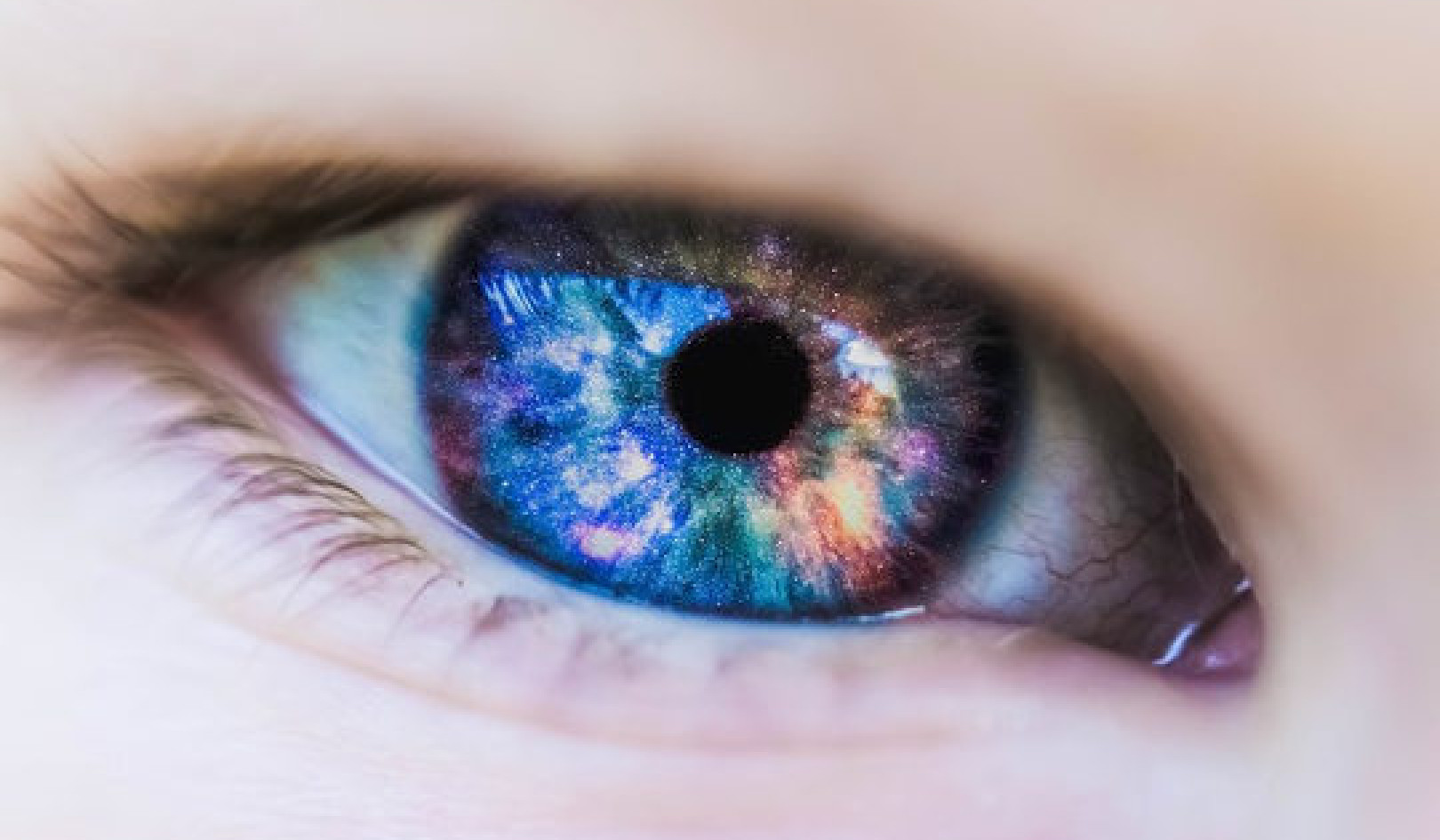
Video calls often show people an image of themselves. SDI Productions/E+ via Getty Images
In the past few years, people across the world have spent more time on video chat programs like Zoom and FaceTime than ever before. These applications mimic in-person encounters by allowing users to see the people they are communicating with. But unlike in-person communications, these programs often also show users a video of themselves. Instead of catching the occasional glimpse of themselves in a mirror, now people are looking at themselves for hours a day.
We are psychologists who study society’s focus on women’s appearance and the consequences of this constant scrutiny. We were immediately fascinated by the new dynamic created by the Zoom world. While critical for public safety during the pandemic, we believe that virtual classes, meetings and the like lead to a continuous focus on one’s own appearance – something research suggests is harmful to mental health, especially for women.

Research has shown that looking at yourself in a mirror can increase how much you think of yourself as an object. Tony Anderson/DigitalVision via Getty Images
Objectification and self-objectification
Objectification is a bit of a buzzword, but the meaning is rather literal: being seen or treated as an object. This often comes in the form of sexual objectification, where bodies and body parts are seen as separate from the person to which they are attached. Advertisements are rife with examples of this, where close-ups of certain body parts are often shown to help market a product, such as a bottle of cologne graphically nestled between a woman’s breasts.
Not surprisingly, women’s bodies are treated as objects way more often than men’s. Because women and girls are socialized in a culture that prioritizes their appearance, they internalize the idea that they are objects. Consequently, women self-objectify, treating themselves as objects to be looked at.
Researchers investigate self-objectification in experimental studies by having study participants focus on their appearance and then measure cognitive, emotional, behavioral or physiological outcomes. Research has shown that being near a mirror, taking a picture of oneself and feeling that one’s appearance is being evaluated by others all increase self-objectification. When you log in to a virtual meeting, you are essentially doing all of these things at once
.
Self-objectification is tied to many mental and physical health issues, and women are more susceptible to these harms. Vicente Méndez/Moment via Getty Images
What does self-objectification do?
Thinking of yourself as an object can lead to changes in a person’s behavior and physical awareness, and has also been shown to negatively affect mental health in a number of ways. While these experiences with self-objectification lead both women and men to focus on their appearance, women tend to face many more negative consequences.
Research suggests that experiencing self-objectification is cognitively taxing for women. In a seminal study done in 1998, researchers showed that when women put on a new swimsuit and viewed themselves in a mirror, the self-objectification this produced caused women to perform poorly on math problems. Men’s math performance was not affected by this objectifying experience.
Further, experiencing objectification has behavioral and physiological consequences. In the aforementioned study, trying on a swimsuit produced feelings of shame among women, which in turn led to restrained eating. Other research has shown that when women think of themselves as objects, they speak less in mixed gender groups.
Self-objectification also leads women to, in a sense, distance themselves from their own bodies. This can cause worse motor performance as well as difficulty recognizing one’s own emotional and bodily states. One study showed that girls who were prone to self-objectification were less physically coordinated than girls who showed less self-objectification.
In a paper we published in 2021, our team showed that women who think of themselves as objects have difficulty recognizing their own body temperature. To test this, we asked women how cold they felt while standing outside nightclubs and bars on chilly nights. We found that the more a woman was focused on her appearance, the less connection there was between the amount of clothing she was wearing and how cold she felt.
In some women, self-objectification can become the default way of thinking of themselves and navigating the world. High levels of this self-objectification can be associated with mental health consequences, including disordered eating, increased anxiety over one’s appearance and depression.
Evidence of harm and how to reduce it
While we are not aware of any research directly exploring the connection between video meetings and self-objectification, some recent studies suggest that our concerns are well founded.
One study found that the more time women who are focused on their looks spent on video calls, the less satisfied they were with their appearance. Facial dissatisfaction also seems to play a role in Zoom fatigue, with women across all races reporting higher levels of Zoom fatigue than their male counterparts.
For better or worse, the virtualization of daily life is here to stay. One way to reduce the negative effects of endless video meetings is to use the “hide self-view” function during online interactions. This hides your image from yourself but not others.
Turning off self-view is easy to do and may help some people, but many others – including us – feel that this puts them at a disadvantage. This may be because being aware of your appearance has benefits, despite the risk of self-objectification and the harms it brings. A huge body of research shows that looking attractive has tangible social and economic benefits, for women more so than for men. By monitoring your appearance, it is possible to anticipate how you will be evaluated and adjust accordingly. Therefore, we expect that people, especially women, will continue to keep the camera on for the duration of their Zoom calls.
A huge amount of previous research suggests that Zoom calls are a perfect storm for self-objectification and that the harms disproportionately affect women. It seems that the already uneven playing field for women is exacerbated in online social interactions. Any small reprieve from staring at a literal projection of yourself will be a net gain for your well-being, especially for women.
About The Authors
Roxanne Felig, PhD Candidate in Social Psychology, University of South Florida and Jamie Goldenberg, Professor of Psychology, University of South Florida
This article is republished from The Conversation under a Creative Commons license. Read the original article.

Books Improving Attitude and Behavior from Amazon's Best Sellers list
"Atomic Habits: An Easy & Proven Way to Build Good Habits & Break Bad Ones"
by James Clear
In this book, James Clear presents a comprehensive guide to building good habits and breaking bad ones. The book includes practical advice and strategies for creating lasting behavior change, based on the latest research in psychology and neuroscience.
Click for more info or to order
"Unf*ck Your Brain: Using Science to Get Over Anxiety, Depression, Anger, Freak-Outs, and Triggers"
by Faith G. Harper, PhD, LPC-S, ACS, ACN
In this book, Dr. Faith Harper offers a guide to understanding and managing common emotional and behavioral issues, including anxiety, depression, and anger. The book includes information on the science behind these issues, as well as practical advice and exercises for coping and healing.
Click for more info or to order
"The Power of Habit: Why We Do What We Do in Life and Business"
by Charles Duhigg
In this book, Charles Duhigg explores the science of habit formation and how habits impact our lives, both personally and professionally. The book includes stories of individuals and organizations who have successfully changed their habits, as well as practical advice for creating lasting behavior change.
Click for more info or to order
"Tiny Habits: The Small Changes That Change Everything"
by BJ Fogg
In this book, BJ Fogg presents a guide to creating lasting behavior change through small, incremental habits. The book includes practical advice and strategies for identifying and implementing tiny habits that can lead to big changes over time.
Click for more info or to order
"The 5 AM Club: Own Your Morning, Elevate Your Life"
by Robin Sharma
In this book, Robin Sharma presents a guide to maximizing your productivity and potential by starting your day early. The book includes practical advice and strategies for creating a morning routine that supports your goals and values, as well as inspiring stories of individuals who have transformed their lives through early rising.























